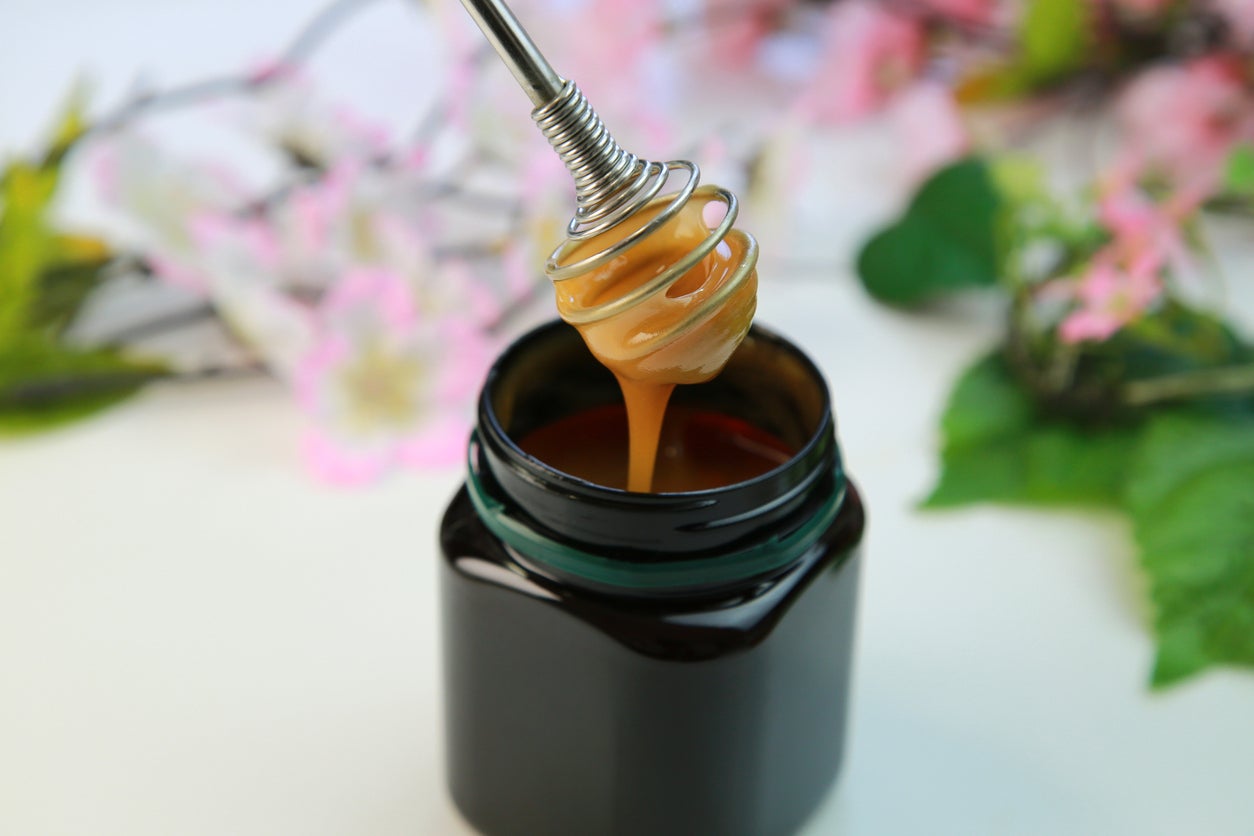Manuka honey helps fight allergies and hay fever, expert claims
Try a spoonful of manuka honey when you get the sniffles this summer

Your support helps us to tell the story
From reproductive rights to climate change to Big Tech, The Independent is on the ground when the story is developing. Whether it's investigating the financials of Elon Musk's pro-Trump PAC or producing our latest documentary, 'The A Word', which shines a light on the American women fighting for reproductive rights, we know how important it is to parse out the facts from the messaging.
At such a critical moment in US history, we need reporters on the ground. Your donation allows us to keep sending journalists to speak to both sides of the story.
The Independent is trusted by Americans across the entire political spectrum. And unlike many other quality news outlets, we choose not to lock Americans out of our reporting and analysis with paywalls. We believe quality journalism should be available to everyone, paid for by those who can afford it.
Your support makes all the difference.For those who suffer from hay fever, enjoying all that summer has to offer is far easier said than done.
As beautiful as the weather can be, attempting to make the most of it can seem fruitless when you have to simultaneously endure a runny nose, itchy eyes and a persistent cough.
While it’s important to consult your doctor so that they can recommend the ideal medication to help you cope with your hay fever, an expert claims that regularly consuming manuka honey could also help soothe your symptoms.
Tracy Lockwood, a registered dietitian based in New York City, detailed how the MGL (methylglyoxal) that’s found in manuka honey can prove extremely beneficial for those experiencing a runny nose as a result of hay fever.
“The active ingredient, MGL methylglyoxal, has been shown to be effective for treatments against nasal mucus - which is [one of the symptoms] you experience when you have allergies,” she told Well+Good.
“The direct relationship isn’t pegged to allergies, but manuka honey’s active ingredient can be an effective treatment for nasal mucus regardless of its source, whether it’s a cold, flu, allergies, or respiratory infection.”
Methylglyoxal can also be referred to as MGO on jars of manuka honey. Manuka honey contains far greater quantities of MGO than normal honey, as True Honey Co. explains.
You can still rely on a spoonful of standard honey in your evening chamomile tea to help clear your nose and make you make you feel more relaxed.
However, chances are that a spoonful of manuka honey could prove far more effective.
“Honey in general can kill the bacteria in our bodies and in biofilms, which are communities of cells sticking to surfaces in our mucuses,” said Ms Lockwood.
“Manuka honey can be used medicinally because of that MGL and will go the extra mile, but regular raw honey can help.”
Providing hay fever and cold sufferers with a bit of light relief isn’t the only supposed advantage of manuka honey.
While many of the benefits of manuka honey are still speculatory, it can apparently be used to help treat burns and wounds, as stated by the Natural Medicines Comprehensive Database.
Furthermore, some individuals even claim that the sweet substance can be used as a treatment for acne.
Join our commenting forum
Join thought-provoking conversations, follow other Independent readers and see their replies
Comments